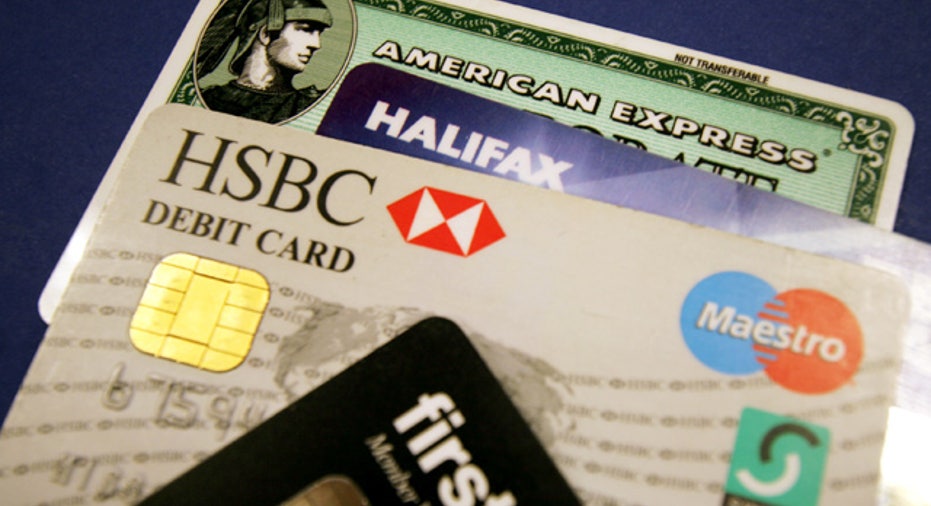Credit Card Ripoffs to Avoid in 2011

While "waiting for the system" to confirm a new credit card account, the customer service representative on the other end of the telephone line often rattles off a series of special offers. In many cases, the rep will use such phrases as "at no risk to you" to get you to buy what they are selling, including payment protection plans, over-the-limit protection, buyer's clubs or identity-theft protection. If you have special needs, the services can sometimes be useful. However, like gym memberships and premium cable channels, it is more likely than not that you'll never squeeze maximum value from these add-on services.
Here are five offers that can turn even the best credit cards into a high-priced plastic nightmare:
1. Payment protection plans
If you can't work or you've lost your job, protection plans "cover" your payment.
Warning: Fees for some plans can cost as much as 5 percent of your average monthly balance. Read the fine print. Your bank may even hit you with high penalty annual percentage rates (APR) after your "insurance" kicks in.2. Overlimit protection
The Credit Card Accountability, Responsibility and Disclosure (CARD) Act of 2009 requires that consumers opt-in to allow overlimit purchases. Now, issuers of even the best credit cards are positioning overlimit protection as a valuable premium service to help you avoid embarrassment at the checkout counter.
Warning: According to a Pew Charitable Trusts' survey of major banks in 2010, you'll pay around $39 for each incident. Opting in to overlimit protection may even negate federal regulations that cap penalties.3. Frequent buyer clubs
For decades, marketing companies paid to have their catalogs arrive at consumer's doorsteps along with credit card statements. Today, affinity buying clubs have evolved to include members-only websites that promise deep discounts and bonus rewards for specialized purchases.
Warning: The fraud trackers at ScamBusters warn that it's harder than ever to spot the difference between a legitimate buying club and a scammer that bought your name on a bank's mailing list. With coupons and price protection easy to find on the web, these clubs rarely save much money, anyway.4. Discount travel clubs
Like frequent buyers clubs, large travel agencies often promise preferential treatment and special perks to cardholders.
Warning: Airlines and hotels will cut you even better deals when you eliminate the middleman and reserve travel on their own websites, according to Washington Post travel columnist Carol Sottili.
5. Identity theft protection
Credit reporting agencies have amped up consumer offerings to include near-real-time alerts when applications for new accounts or other signs of fraud appear.
Warning: Credit bureaus must offer you a free credit report at least once per year, which can be easily obtained through the website AnnualCreditReport.com. Unless you're actively trying to repair your credit, says radio host Clark Howard, you probably don't need to review your credit file more than a few times per year.
Separating service from signup
The technique of offering test drives and no-risk samples is one reason why these credit card add-ons have raised concern at such watchdog groups as the Better Business Bureau (BBB). If a representative asks whether you like saving money, they're using a classic sales technique that puts you in a more agreeable mood.
Sadly, some reps take this banter a step further. They use recordings of you saying the word "yes" as proof that you agreed to regular monthly billing for add-on services. According to civil suits filed by consumer protection law firm Carey, Danis & Lowe, agents may also goad you into accepting a "risk-free promotional packet by mail," which triggers the start of your billing cycle.Making it all the more complicated, you may not really know with whom you are dealing. The best credit card issuers rarely run added-value services in house. Almost always, third-party operators use marketing partnerships to gain access to new customers. That type of marketing relationship makes it impossible for most banks to cancel billing without forcing you to report an account as lost or stolen.The Federal Trade Commission investigated and closed companies that used similar business models to "cram" monthly service fees onto telephone bills in the 1990s and 2000s. With complaints of credit card cramming on the rise, consumers have asked the BBB and the Federal Trade Commission to crack down on companies that won't take "no" for an answer. Check your credit card statements regularly for charges you don't recognize. Remember, if you can't wait a day to make a decision, you probably don't need that service, anyway.
By Joe Taylor Jr
Original Article: Credit Card Ripoffs to Avoid in 2011
Related Articles:



















